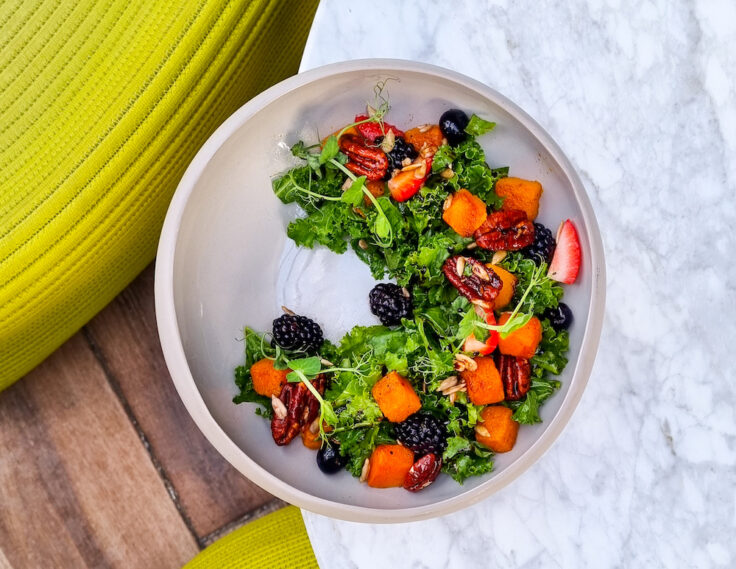If you’re thinking about going vegan this month, you aren’t alone. Veganuary (a portmanteau of “vegan” and “January”) has seen rapid growth since the campaign’s initial launch in the UK in January 2014, with nearly 2.5 million people taking the 31-day plant-based pledge from almost every country in the world.
The campaign has inspired a growing number of people to go vegan and this year saw a record sign-up rate of one person taking up the challenge every 2.4 seconds as more people are looking to reduce their impact on the environment. Indeed, the production of meat and dairy items takes a huge toll on our planet. Research shows that without meat and dairy consumption, global farmland use could be reduced by more than 75%, while one study by Oxford suggested that by going vegan we can reduce our carbon footprint by up to 73%.
Put simply, switching to a plant-based diet could be key to saving our planet. If you’re not sure where to start, we asked plant-based Chef Neil Martin of Open Sesame, Hotel Indigo Dubai Downtown to share his top tips for those taking on the global pledge to go vegan for January and beyond.
Start small
Gradually incorporating more plant-based foods into your diet, rather than making drastic changes all at once, will make the transition easier and more sustainable. For example, you can start by trying one meatless meal per week and gradually increasing the frequency as you become more comfortable with the new way of eating.
Plan ahead
Plan your meals and snacks in advance to ensure you have healthy plant-based options available. This will prevent you from reaching for unhealthy options when you’re short on time or caught off guard. Meal prepping, or making a big batch of a plant-based dish to enjoy throughout the week, is a great way to plan ahead.
Get creative
Experiment with different plant-based ingredients and recipes to find new and exciting meals. There are many plant-based cookbooks, websites, and YouTube channels that provide delicious and healthy recipes.
Keep it simple
Focus on whole foods, such as fruits, vegetables, whole grains, and legumes, rather than processed alternatives. Whole foods are nutrient-dense and provide the body with the necessary vitamins, minerals, and fibers it needs to function properly.
Educate yourself
Learn about the nutritional benefits of a plant-based diet and find out how to get all the essential nutrients you need from plant-based sources. This will help you make informed choices about your food, and also help you to make alternative options that provide the same nutrient that you may miss from not eating animal-based products.









